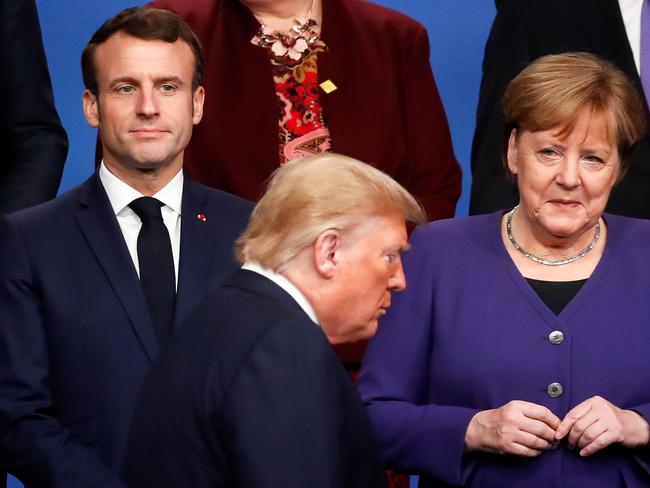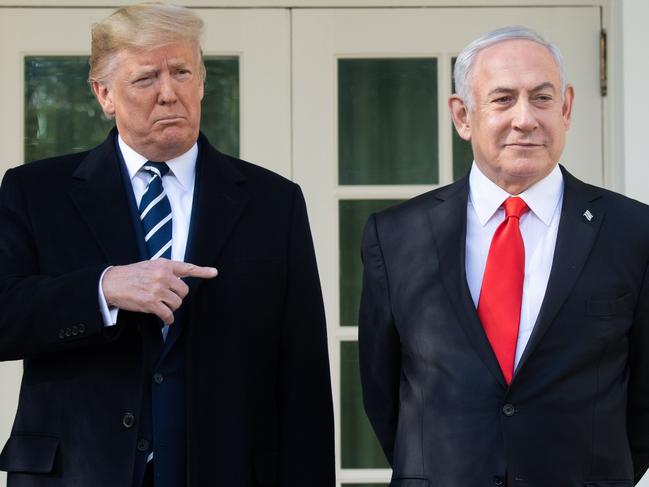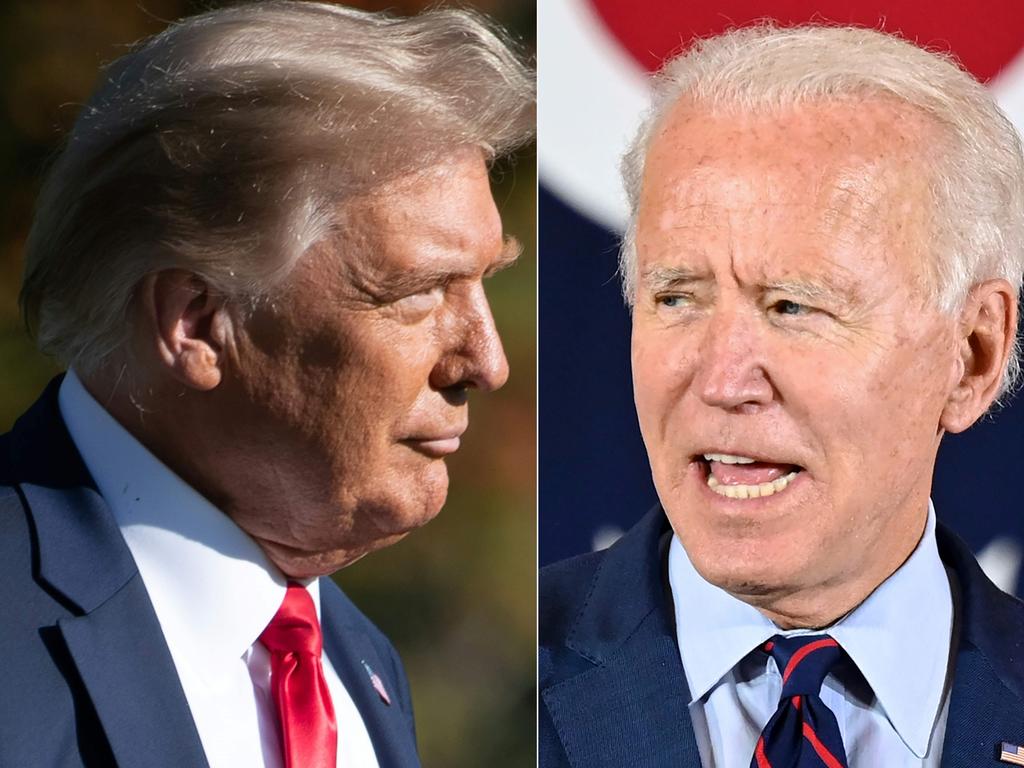How Donald Trump has changed the world in four years

In the four years of the Trump administration perceptions of the United States as a force for good have fallen to record lows. Old alliances are under extreme strain. The idea that America upholds a set of values has begun to buckle.
After Mr Trump’s transactional approach in foreign affairs it is hard to imagine there being another Marshall Plan, which opened the era of the Pax Americana. Tempting as it is to see the “America First” global posture as a Trumpian spasm, isolationism has a long history in America and was the country’s stance before the Second World War.
Mr Trump may prove to be a transitionary figure to a new era, building on Barack Obama’s caution about embroiling America in never-ending conflicts, itself a product of the trauma of the Bush years. Trump has no new wars in his legacy. The tensions he exacerbated with Iran have perhaps come closest, along with growing tensions with China that could yet lead to a military confrontation.
Much of his legacy comes from the stylistic approach that Mr Romney warned of rather than concrete policy choices. Old allies no longer have the same faith in American consistency and it remains to be seen whether those alliances will be rebuilt. China’s rise has changed the underlying dynamics in ways that will steer the course of international relations for years to come.
Mr Trump may be more responsible than any other world leader for highlighting the challenge posed by China’s rise and concentrating minds on it. While America has withdrawn from multilateral institutions, empowering China, it is not too late to reverse that.
Mr Trump’s other choices, like moving the US embassy to Jerusalem and in effect ending the prospects of a Palestinian state, may never be undone. And though he has not acted on threats to withdraw from NATO, simply voicing them has forced Europe to think differently about how to best ensure its own security in an era where trust in America is no longer absolute.
NATO, RUSSIA AND THE TRANSATLANTIC RELATIONSHIP
Mr Trump made it clear from the outset of his 2016 campaign that he saw NATO’s focus on European security as an “outdated mission”. He alarmed NATO allies by hinting at withdrawing from the organisation he called “obsolete” and seeking a compact with Russia. The pressure succeeded in forcing some European countries to increase their defence spending. His vow to withdraw 12,000 US troops from Germany after accusing Berlin of “delinquence” on defence spending put Europe on notice that it could no longer lean so heavily on America for its security. That lesson will stick, not least as security policy develops in the Asia-Pacific, in response to China’s growing militarism.

Mr Trump’s antipathy towards NATO was fuelled in some part by his warmness towards Moscow and President Putin, and his desire to triangulate the relationship with China, which he saw as a greater strategic threat. Mr Trump’s reluctance to treat Russia as a threat has baffled many of his foreign policy officials but ultimately he has been pushed into action, including with sanctions linked to the Salisbury nerve agent poisoning and Russian interference in US elections.
It is hard to overstate the sheer shock the Trump presidency dealt a Europe previously comfortable in the security guarantees Washington gave it. Trump’s apparent preference for autocrats – including the EU’s most dictatorial leader, Viktor Orban – shook the transatlantic belief in shared American and European values. Trump had little hesitation in reminding European leaders of the power imbalance between the two continents. Trump’s withdrawal from the Paris climate agreement and the strength of climate change scepticism among the American electorate is a reminder that global action to protect the environment could remain a tough fight.
CHINA
Mr Trump may be remembered as the president who oversaw the beginning of a new cold war between America and China. Much of that is down not to anything he chose to do but Beijing’s growing assertiveness, a danger that the president was perhaps quicker to latch on to than other world leaders, and has involved dispatching aircraft carrier strike groups to the disputed South China Sea.
Starting from a singled-minded obsession with the trade deficit, Mr Trump’s China scepticism has become increasingly orthodox in Washington amid concerns about its unfair trade practices and expanding influence.

His lack of interest in multilateral action has often played into China’s hand, however. The US was meant to join the Trans-Pacific Partnership to help counter China’s economic bullying in the region but Mr Trump pulled out of it calling it a “giant trade fraud”. Now Beijing is racing to sign up its neighbours to the rival Regional Comprehensive Economic Partnership, creating the world’s largest trading bloc while Mike Pompeo, the US secretary of state, has travelled round Asia trying to sign up some of the same countries.
Mr Trump has also progressively withdrawn from one international institution after another, from the UN Human Rights Council to Unesco and the World Health Organisation, opening up space for greater Chinese influence and sending a message that the international rules-based order may no longer have the backing of one of its original architects.
NORTH KOREA
Mr Trump’s grim expression during his first transition meeting with Mr Obama was down to the warning he had just heard about North Korea’s nuclear and ballistic missile programs.

Mr Obama told him that before his term was up, North Korea would probably be able to strike the continental US. Despite summits and boasts about Mr Trump’s friendship with Kim Jong-un, the North Korean leader, nothing about that trajectory has shifted. Mr Kim has continued to conduct nuclear tests and launch missiles while Mr Trump, eager to strike a bilateral deal, failed to press for any multilateral action at the UN.
North Korea continues to operate illicitly. Despite the president’s declaration that “there is no longer a nuclear threat from North Korea”, experts say that it is advancing to the point whereby the US may soon have no choice but to accept it as a nuclear power and settle for an oversight regime instead.
THE MIDDLE EAST
Mr Trump’s moves in the Middle East have delighted the Israelis and angered and dismayed the Palestinians. He ended US financial aid to the Palestinians, closed their offices in Washington and recognised Jerusalem as Israel’s capital, moving the US embassy there. It seems unthinkable that another US president could now move it away.

Other aspects of Mr Trump’s Middle East policy also look likely to become permanent. It is quite possible that thanks to him the Palestinians will now never gain a state of their own. Palestinian statehood was once the price that Arab countries held over Israel’s head as a condition of them recognising the Jewish state. That changed when the UAE and Bahrain chose to formalise their friendly if covert relations with Israel on a promise that it would not annex the West Bank. Those moves were driven by anxiety over Iran’s regional hegemony shared by Israel and the Sunni Gulf states. Similarly, Mr Trump’s preoccupation with Iran rendered him incapable of criticism of Saudi Arabia following the murder of the journalist Jamal Khashoggi, even boasting that he had “saved their arse” from Congress’s efforts to cut off weapons sales.
IRAN
Mr Trump’s decision to dump President Obama’s Iran nuclear agreement set the US back on a path of confrontation with the country and isolated Washington from its European allies. He claimed to want to strike a new, better, nuclear deal with Iran but his “maximum pressure” sanctions campaign, wrecking its economy, has not brought it to the negotiating table.
The deal’s collapse has hurt the Iranian moderates who argued for negotiations and strengthened the hand of hardliners who say that the Americans cannot be trusted. Even trying to bring negotiations back to where they were, under a new administration, will be problematic, given the past four years. At worst, the case in Tehran for talking to the Americans has already been lost.
Mr Trump’s decision to kill Iran’s most powerful general, Qassem Soleimani, then stunned the region and heightened tensions again. Iran vowed to retaliate but the arrival of the coronavirus pandemic there may have averted more action. It is not clear whether the strike has put paid to Iran’s regional destabilisation efforts in the longer term but, along with sanctions, it closed off space for any diplomatic resolution with the US. Joe Biden has said he would seek to rejoin the nuclear deal, but negotiations would be hard.
ARMS CONTROL
It was a Republican president, Ronald Reagan, who first brought Washington and Moscow together to sign a nuclear arms treaty.

In 2018 Mr Trump called time on the first of those treaties to be signed, limiting the deployment of intermediate-range nuclear and conventional weapons. He cited Russian noncompliance but his goal was to force China into joining a trilateral arms control deal. With no real leverage, that failed. China’s arsenal is a fraction of the size of Russia’s and Mr Trump’s decision to abandon the treaty harms Washington’s ability to see what Russia is doing.
That is set to worsen. The last of the Cold War era arms control, Start, is due expire in February, leaving no legally binding limits on the world’s two largest nuclear arsenals for the first time since 1972. Without time for proper renegotiation, a new president would have little choice but to extend the existing deal or risk a new nuclear arms race.
The Times







It was one of Donald Trump’s Republican rivals, Mitt Romney, who warned his party four years ago that under a Trump presidency “America would cease to be a shining city on a hill”. The prediction grew from unease about Mr Trump’s character. Little of his foreign policy aspirations were then known.